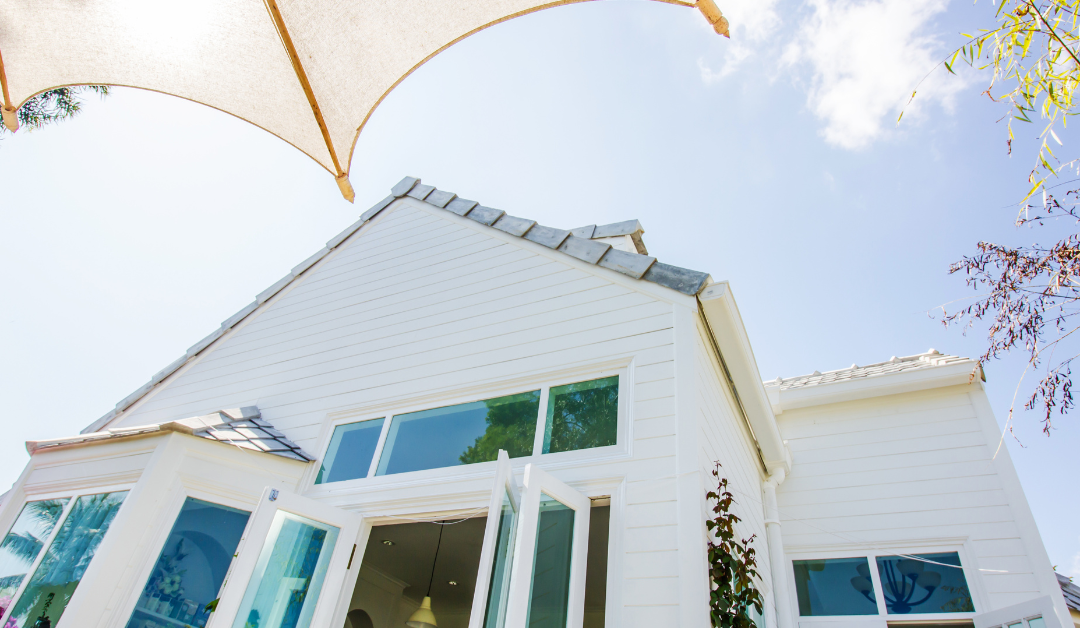We’ve all done it, right? Spent time in a picturesque location in a lovely holiday home and began to ponder what it would be like to own a holiday house there. Many may have even gone a few steps further; contacted local real estate agents and looked on portals to assess what the costs of owning a holiday home would be. Really debating if we could afford it before committing to the daydream of what future summer vacations, not to mention Christmas, spring break, and those long weekends could look like.
Owning a holiday home, is it really the right investment?
The answer to this complex depends on a number of different factors. It is important for you to consider your unique situation; what is your motivation for buying a holiday home and what are your long-term goals to determine whether this is the right option for you. For example, are you buying somewhere you will eventually retire to but rent out in the meantime? Is this a lifestyle investment? How often will you use the home? Is it easily accessible, and the list goes on…
It can be very easy to romanticise the idea of spending every school summer holiday in your very own chateaux in the French countryside surrounded by vineyards creating childhood memories for your children; warm days by the pool, beautiful scenery, and cycling to the local boulangerie for fresh bread in the morning. Can your finances meet the dream?
Would you be “better off” spending a few evenings looking through Airbnb and renting someone else’s holiday home for the week where all you have to do is show up? You don’t have to worry about the cleaning, maintenance, running costs, occupancy during the offseason, and keeping up the 5-star reviews. This also begs the question, as a guest where could you go next? What do you do in the offseason? If you don’t own your own holiday home this would allow you to look at renting another holiday home in the Alps during half term to take the children skiing or a cabin in the snow in Poland for a white Christmas.
If you would like to investigate your options a little further, here are some things to consider.
Consult your financial adviser, accountant and local real estate agents to get some insights.
Best location to buy a holiday home

Whether you are buying a holiday home, long-term investment property, or even a new family home; finding the right location based on your budget and considering the potential return is essential. For many, the area for a holiday home will be somewhere that they themselves would like to holiday (or have previously holidayed).
The first rule of property investment is location, location, location. For holiday rentals, start by looking at desirable locations where people want to holiday. Is the area located by the beach, water, or a lake? Does it offer unique views of the mountains and countryside? What is the climate like? What types of activities and experiences are nearby? Is it accessible by car, plane or public transport? How far away is the closest international airport? Who is your target market? Is it family-friendly? Are there specific festivals or events throughout the year? If tourism is not your primary market, then what other industries are available within that location and what is the demand like for that type of property. These are just some of the questions to ask yourself and consider.
Another consideration when looking at locations for holiday homes is development potential. Is the property you are considering able to be subdivided or developed further in the future if you choose to do so? This can significantly affect future plans and your potential returns.
Many local councils and building management companies around the world have introduced rules which prohibit short-term rentals as part of the council or building by-laws where short-term rentals are either not allowed or are restricted to a certain amount of time per year eg 90 days. This can significantly affect your rental return. Make sure you research this properly before making any decisions and confirm whether this applies to your property.
What (and where!) are guests looking for in a holiday home?

Your target clientele and demographic for holiday homes within your target area will help you ascertain what people are looking for in a home that they will rent for a week or two. Who is searching the area for holiday rentals? Is it groups of friends, singles, couples, or large families? Are people looking for centrally located small apartments or spacious villas with enough room to host large extended families, groups of friends, or corporate weekends away?
What amenities are people searching for when looking for a short-term or longer-term stay? Is it worthwhile adding a pool or a hot tub? Will air conditioning/heating or a heated pool help with occupancy levels and does the cost of installation and maintenance of these items work out financially?
Demand. What is the current demand, and future demand, for holiday rentals within your chosen area? Is the rental market currently saturated? What are the occupancy rates and what is the nightly rate in both peak and off-season? It may be easier to rent a huge 7-bedroom villa in the Greek Islands in summer, but what is the demand like in the quiet winter months when ferry and airline schedules are reduced.
If you are buying a holiday home primarily as a lifestyle investment, then consider your own current needs as well as future needs. Is it located close to your current home? If it involves flights, are there regular low-cost flights available from your hometown to the local airport? Realistically does it make sense (including travel time) to go for a long weekend or what would be the minimum amount of time that you could go for? If you wish to combine using the home yourself and renting it out, is there somewhere private where you can keep your personal belongings (including a car)? If you plan on using it for holidays with family and friends; will you get the use out of this investment?
Costs to consider when buying a holiday home

A holiday home undoubtedly comes with more costs than a regular investment property; could the lifestyle of this investment and potential returns offset these initial and ongoing costs?
Generally speaking, to ensure higher capital growth, it is important to try and keep your holiday rental for the longer term; giving you the opportunity to increase the potential value but you must ensure you have the cash flow to finance this.
Some of the costs to be aware of include:
- Interest on mortgage payments
- Management fees
- Cleaning fees
- Marketing fees (including third-party agencies eg Airbnb)
- Cancellation fees
- Furniture
- Wear and tear on the property
- Welcome gifts (if provided)
- Unoccupied times or times when you are using the property yourself
- Peak vs off-peak pricing
- Utility bills including things like air conditioning, heating, pool heating, etc
- Technology and entertainment
- Tax implications
- And much more!
The most important thing, as with any investment, is to be fully aware of any potential risks and costs to make an informed decision.
Tax implications of owning a holiday home

Taxation and the implications of owning a holiday home can differ from country to country and much depend on your own circumstances. Finsbury Associates can help with this discussion, assessing potential tax implications and the most effective way to structure a holiday home purchase in order to make the most tax-efficient choices. An accountant can also assist with this before you spend your hard-earned cash.
Things to consider (depending on the location, your tax status, income, and local laws) include:
- Tax on rental income
- Tax-deductible expenses
- Negative gearing
- Tax on mortgage interest
- Maintenance and management costs
- Inheritance tax
- Capital Gains Tax liabilities
… and much more.
Holiday lets vs long term rental

For many property owners, the lure of higher nightly returns on short-term holiday rentals can be more attractive compared to long-term rentals. It is important to look at the full picture. During peak season, a holiday rental could earn you as much in a week as you would get in a month for a long-term rental. The economics are not always that simple.
The average occupancy level for holiday rentals is between 20-24 weeks of the year. For popular rental properties, this can increase up to 40 weeks of the year. Unless your property is a year-round destination, there is generally a large difference both in earning potential and vacancy rates between peak and off-peak seasons and it is important to factor this in. If you will be using the home yourself, take this into consideration when looking at the potential costs and rental return for the weeks the property will be available. For example, if you are basing your figures on a 20-week occupancy during peak season, but you would like to use the home yourself during 6 weeks of the peak season you need to make adjustments to your forecasts accordingly.
Additional things to consider when looking at long-term rentals vs holiday rentals are the increased upkeep costs, furniture costs, cleaning costs, utilities, council occupancy rules, management fees, and times when a vacation home is vacant. Longer-term rentals still generally involve management fees, and maintenance but generally have lower nightly/monthly returns than short-term rentals.
There is no “one size fits all” answer to which is the better option as it much depends on your personal circumstances.
To buy or not to buy?
With summer now upon us and a plethora of stunning locations to visit, the question of buying a holiday home will undoubtedly be on many people’s minds whilst enjoying a long summer evening with a glass of cold rose in hand and out of office holiday mode on.
For those pondering the benefits and the risks of a holiday home, before taking the plunge realistically assess the reasons for your potential purchase, financial ability, and real-life logistics. Consult with your accountant, financial advisor, and estate agents before signing on the dotted line to ensure the reality matches your daydream of becoming a local at the village boulangerie, the quaint pub, or the weekly Sunday market!

